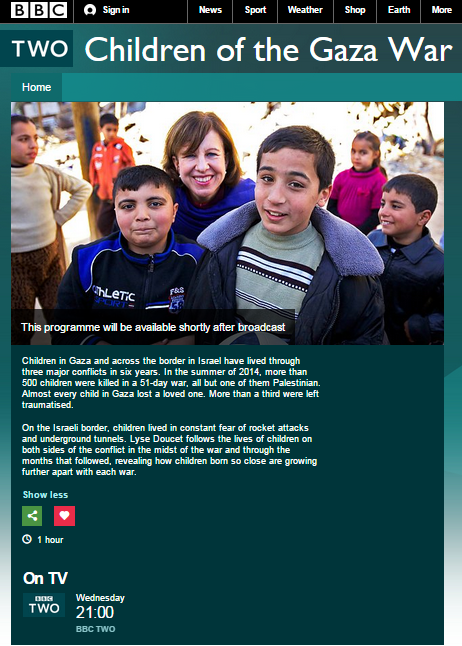One of the recurrent themes adopted across the board by the BBC both before and during Operation ‘Pillar of Cloud’ was that the recent upsurge in violence between Israel and the Hamas regime in the Gaza Strip was connected to the elections due to be held in Israel in January of next year.
These are just several of many examples:
Here is the BBC Jerusalem Bureau’s Kevin Connolly’s response when asked by Jeremy Vine on November 19th whether the operation should be seen as connected to the Israeli elections:
“Yeah, I think we should is the simple truth. I mean I think from Binyamin Netanyahu’s point of view, if he were able to show that he had eradicated or really, really substantially degraded the threat of rockets from Gaza then that would be something very useful to take into an election campaign. Israelis are going to vote in about two months’ time and there’s no question that that would be a political advantage to him.”
“…a lot of Israelis feel that if they can just stick to this operation until it’s carried to its logical end, they can really, really damage Hamas’ military potential and if Netanyahu can do that without incurring too many Israeli casualties then …you know…it’s a brutal political calculation, but it’s real, Jeremy,… then that would be, I think, an advantage to him. And of course he is an elected politician – that simply has to be in his mind.”
Here is the BBC’s Middle East Editor Jeremy Bowen on the BBC News website’s Middle East section ‘live updates’ page on November 14th:
“Israel says it killed the Hamas military leader because he had a lot of blood on his hands – and as an answer to Palestinian rocket fire. But there will be questions about the timing of Israel’s action. The Prime Minister Benjamin Netanyahu has called an election in January. In the past, military strikes have been used to send messages about the toughness of Israeli leaders.”
Here is Jon Donnison on October 29th – a full two weeks before the operation began:
“The Israeli government is also under pressure from the public to be seen to be responding to Palestinian rocket fire which impacts on the lives of hundreds of thousands of people living in southern Israel.
This is especially the case in the run-up to Israeli elections which will take place in January next year.”
It is therefore fitting to take a look at the effects of Operation ‘Pillar of Cloud’ on the Israeli political scene.
In a poll conducted by the Israeli Channel 2 TV station very close to the announcement of the cease fire on November 22nd, the current ruling coalition of the Likud (headed by Prime Minister Binyamin Netanyahu) and Israel Beiteinu (headed by Foreign Minister Avigdor Lieberman) went down from its current 42 seats in the Knesset to 34.
The opposition Labour Party went up from a current eight seats to nineteen. Labour’s Amir Peretz (a resident of Sderot) has been receiving much praise in the Israeli media for his role as ‘father’ of the Iron Dome missile defence system which saved so many lives during the latest hostilities.
On November 26th, a mere four days after the end of the operation, Defence Minister Ehud Barak of the Independence Party announced his retirement from politics: a move which puts the future of that party in doubt.
In other words, the BBC’s ‘it’s all because of the Israeli elections’ theme was clearly based on its promoters’ personal perceptions of specific Israeli politicians rather than on fact-based analysis and an understanding of the Israeli political scene.




